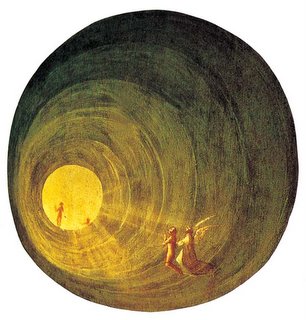
It seems religious fanaticism is hitting another peak these days. Between the Christian Right and their agenda in the US and the militant Islamic forces in the Middle East and Asia, it seems people are more willing to die for their faith now that at any other time in the past 20 years. This is strange to me. One would think that as time progressed forward, people's minds would become more open to what's going on around them in the world, and the wide gap in differences of beliefs.
Can't people realize that this is the only world we have and we have to live together to make it work?
I realize there are a lot more forces at work than simply faith, but such religious conservatism seems strange to me in the 21st century.
I just started reading a cool new book by one of my favorite authors, Jon Krakauer. Known for his forays concerning extreme physical adventure such as Into Thin Air and Into the Wild, this new book is a exploration of spiritual extremes. In Under the Banner of Heaven, Krakauer examines the history of one of America's strangest religious orders, the Mormon Fundamentalists. Notorius for their polygamous beliefs and practices, the men in this religion believe it is their divine obligation to take multiple wives, many of which are already related to them as part of their own family. Incest, molestation, and rape run rampant in these secluded societies in Colorado, Utah, and British Colombia. The head of their order, who is believed to be God's mouthpiece on Earth, divides the women up amongst the men, many times marrying girls as young as 14 to men twice or three times their age. These women become like sex slaves, and are so indoctrinated by the church itself, many times they accept their lives of servitude without question. This life is all they know. Mormon Fundamentalists are forbidden to read books, magazines, newspapers or watch television or films from the outside world. They live in these weird little bubbles with their gargantuan, sprawling families, ruled by the church itself. It's a facinating and extremely well researched book.
